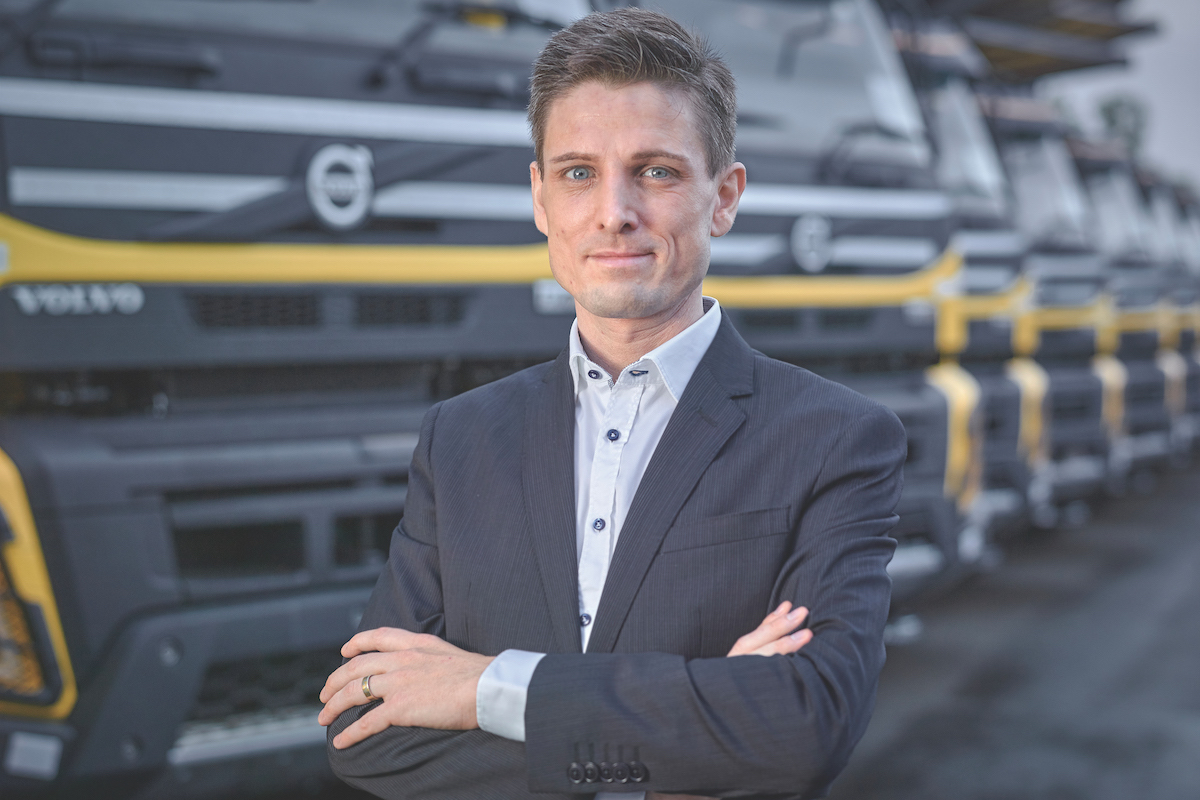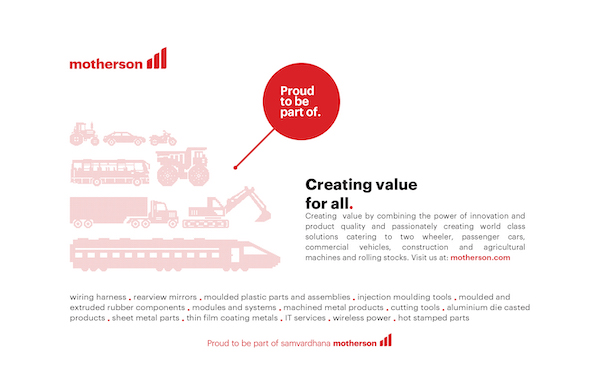‘Made in Japan’ stands for quality. ‘Made in China’ correlates to price. But, what does ‘Made in India’ mean to the global market? If Vice President of Volvo Penta Miron Thoms has anything to do with it, brand India stands for unbeatable, premium industrial engines.

“Today, India is a domestically driven market. If we go further in the future, I believe that this country has very strong potential in export,” explains Miron. “But, in order to be an export country, the image of ‘Made in India’ has to improve.”
A part of the multinational manufacturing giant Volvo Group, Volvo Penta benefits from its parent company’s global reach, priming it to improve India’s reputation. It also doesn’t hurt that Volvo Penta has been delivering high-performance, premium marine and industrial power solutions in India for more than two decades.
“We are always keeping our production standards, our quality standards, our safety standards and our employee standards on the same level globally,” he shares. “We will never compete with other players on price. We will always be the premium player in the market, offering higher value over the product’s lifetime.”
The only thing better than Volvo Penta’s unwavering commitment to quality is its drive to innovate. In this endeavour, the company’s partnerships are more valuable than ever. “We not only turn to our suppliers to produce parts for us, but we also look to them for improvements,” Miron says.
“Maybe the part we developed is not the sun in the sky. Maybe our suppliers have a better idea. So, together we can engineer the best parts in the market and say our Volvo engine really is the best.”
This close partnership is mutually beneficial. Not only does Volvo Penta remain at the forefront of innovation, but its suppliers are also guaranteed future employment; a win–win. And its positive effects are funnelled all the way down to the consumer.
“Working hand in hand benefits us all,” he stresses. “We stand true to our values and promises, and we are a true partner in the business – much more than just a customer/supplier relationship. We channel our values throughout our organisation so, at the end of the day, the customer who buys the machine – and, ultimately pays our bills – is happy.”
“We channel our values throughout our organisation.”
Working steadfastly to continually benefit Volvo Penta’s customers, Miron is laser-focused on growing the industrial segment of the business. “We are market leaders when it comes to the marine business in our segment and, in general, that business is not growing so fast anymore,” he explains.
“If you look at India itself, there is no marine business. The culture is not here. But, we see a strong industrial footprint. That’s what we want to grow. And, that’s one of the main reasons I’m here in India now.”

Miron moved to India a year ago to further grow the industrial engine business – something he’s been working on for a decade. “It’s a completely new management level,” he says. “In the past, I’ve always been responsible for only one part of the business. Now, I’m responsible for the entire Volvo Penta India organisation here in India.”
It’s a challenge he’s handling with extraordinary finesse. The industrial business is making great strides towards 100% localisation and is already assembling entirely in India. “At the moment, we are focusing on Indian-specific customers only. In the beginning of 2017, we opened an engine production facility for the local demand,” he says. “Our next step will be for global demand of the product, coming within the next two years.”
It was the only logical next step for the company’s growth plan. “What do you do next? You look outside the borders of your country,” Miron details. “The growth ambition we have in India is enormous. It’s a challenge but we see very good potential here. I’d always like to grow faster than the economy of India, which at the moment, is the fastest growing in the world. As long as we outperform fast-growing India, we are doing our job well.”
Future-focused Miron has already begun laying the foundation for this bold growth initiative. “We are focusing on productivity and efficiency and all of these features – features you need if you want to be a global player. We are getting our suppliers ready to be a player in the global market,” he explains.
“As you can imagine, this will take some time. But, we are making sure the first steps are laid down in order to make our suppliers ready for the global market and starting an export of their product line. With that, we will see long-term growth.”
He’s also readying his team for the change. Many of them have been with the company for nearly 20 years, so he’s looking into ways to freshen up their perspectives and keep tunnel vision at bay. “We have really skilled and well educated people. Our foundation is already very well set,” he says. “However, people who are experts in their field often lose sight of what’s around them. So, we’re trying to implement an out-of-the-box thinking initiative.
“We also want to delve deeper into cross-segment communication to avoid silo thinking. Sure, we have a marine segment and an industrial segment, but that doesn’t mean we can’t find synergy between them.”
While Volvo Penta India is firing on all cylinders behind the scenes, Miron says as long as it stays on course, the company will keep hush-hush. “I am a very big fan of the saying, ‘Seeing is believing’. People talk about a lot of things but can’t always provide results to back up what they’re saying. As long as Volvo Penta is on its growth plan and continues to grow steadily, we will keep quiet. Once we have achieved our goals, then we will talk about it.”
Proudly supported by:



